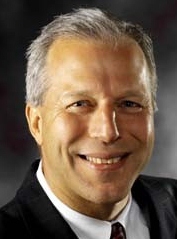
I had an opportunity to address the Georgian PR Club (Russia) via Skype earlier in April, as a guest of Berdia Natsvlishvili who heads up the Club of PR leaders that gathers regularly in Tbilisi. Berdia is also Country Director for PH International Georgia and has stayed connected with Dennis Wilcox, formerly of San Jose State University who along with Frank Ovaitt arranged for me to present to the group on the subject of PR Trends. We had a lively 90 minute dialogue in which I addressed the drivers of change including the Page Society New Model and trends related to measurement, functional organization and setup.
PR is a relatively new practice in Georgia, less than 20 years old and in many respects the development of PR in Georgia essentially leapfrogged the traditional news media relations and government affairs rooted functional development that has occurred in more mature and developed markets. By the lines of questioning and conversation it is clear that PR professionals in Georgia are grappling with resources and creating an understanding of the applications and value of PR. Their functional accountabilities span the gamut from digital to internal to media to marketing and public affairs. They don’t face the territorial and turf battles common in larger companies and more mature economies. I explained that they should see this broader reach as an opportunity to manage overall communications with multiple stakeholders. I believe they understood the value of the broader reach, but have limited resources and experience in multi-tiered communications programming.
Most of the Georgian professionals have gotten their training in schools in Russia and have a thirst for how more progressive companies in other geographies are leveraging the capabilities of public relations to accomplish business objectives. Functional reporting lines are varied and professionals are aspiring to have someone at the VP level to advocate on their behalf. They are facing the classic stages of functional development including resources constraints, limited understanding of PR by management, reactive programming, broad accountability and limited time for metrics. They voiced great interest in topical areas like thought leadership, integrated marketing, digital and internal communications.
IPR is serving an especially important role in helping these developing countries and the professional PR community better understand the development opportunity before them. They are searching for context and in doing so appreciate and listen to experiences in other parts of the world and are very committed to professional development. They lack classic functional leadership as is much more common in more developed and mature economies of the world. They are often soloists or smaller teams and the opportunity is for them learn from practices around the world and apply these lessons in developing economies so that leaders begin to understand and harness the power of more progressive communications with key stakeholders.
Matt Gonring was an executive officer leading communications for 6 large corporations and a graduate professor at Northwestern and George Washington University’s and Chairman Emeritus of IPR.




Many thanks, Matt, for sharing your expertise with the members of the PR Club in Tbilisi. Your insights and wealth of experience gave the members a vision of what they should strive for as they strive to become more professional and to convince employers about the full range of PR activities that could advance an organization’s objectives. Many members of the Georgian PR club are still young but many of them have a good grounding in basic PR principles because several universities in Tbilisi now offer PR courses and are developing full-scale curriculums in the subject. Students, I might add, are also benefitting from the Georgian edition of my textbook, Public Relations Strategies & Tactics. PR practitioners in Georgia, however, still face many obstacles. One is the problem of “pay for play” in which newspapers and the television stations want payment for running news releases or having a spokesperson appear on a TV program. A second obstacle is that there’s still a Soviet-era hangover and many local businesses don’t have an understanding of the role of marketing and public relations in a capitalistic economy. As a result, international corporations with Tbilisi operations are usually leading the way in terms of more sophisticated public relations practices. IPR, of course, is a great resource for Georgian PR practitioners and again shows the value of everything IPR does that has global impact.